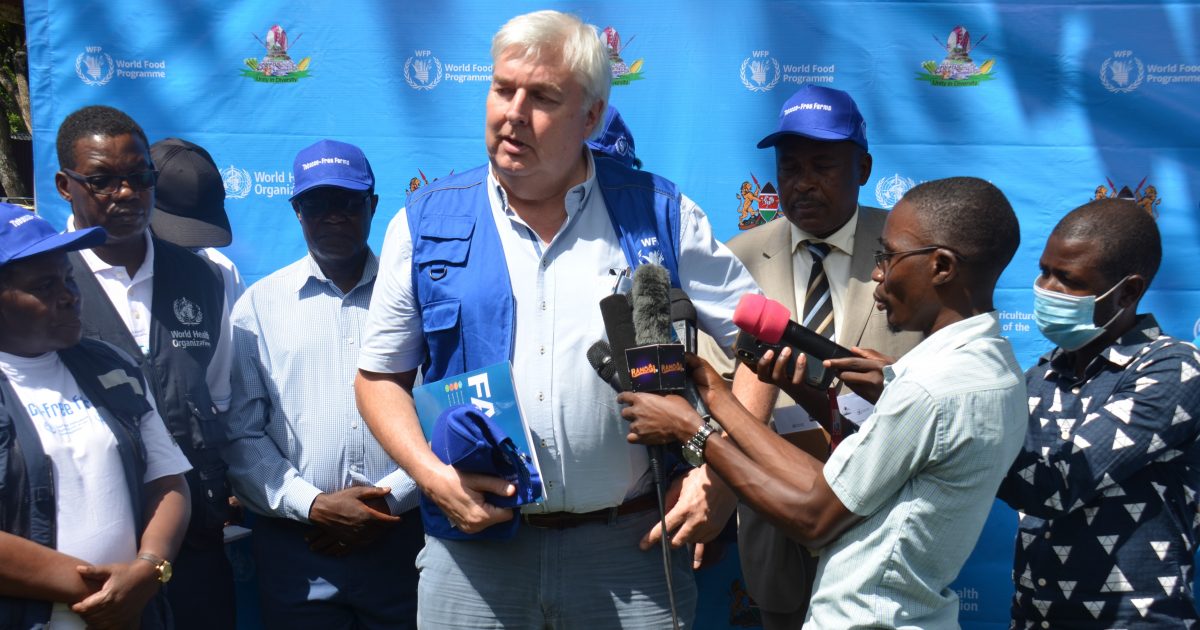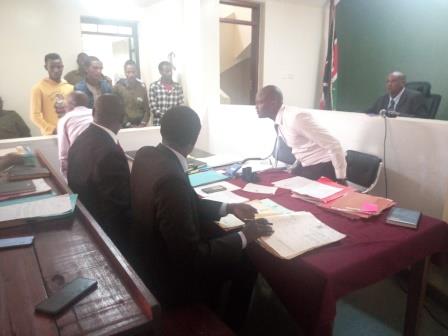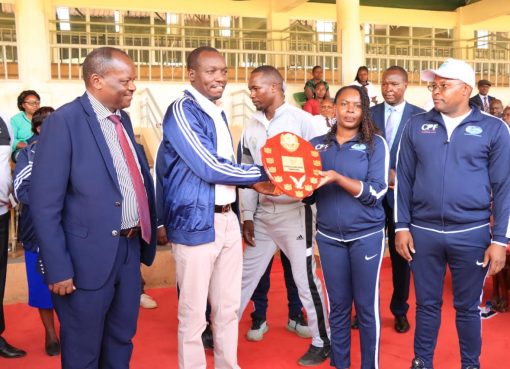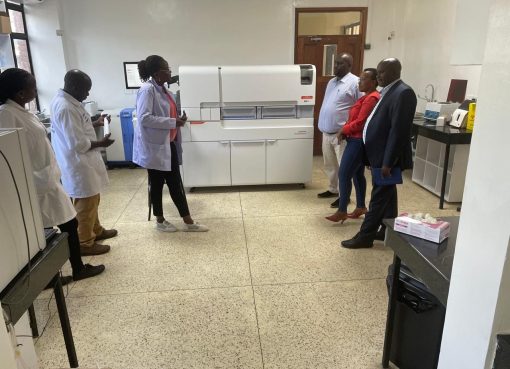Former tobacco farmers in Migori are continuing to reap the benefits from bean farming after the World Food Programme (WFP) provided a ready market for their enterprise.
In 2021, the WFP bought 134 tonnes of beans from Migori farmers who were previously engaged in tobacco farming.
Speaking during the first launch of Free Tobacco Farming, the County Secretary Cristopher Rusana said that the county managed to produce 200 tonnes of beans from 370 acres managed by 330 former tobacco farmers.
The bean farmers in return received Sh13 million from their bean sales to WFP.
The county executive noted that the launch of Free Tobacco farming aims to recruit at least 600 more farmers.
He said that they intend to give local farmers an alternative solution to the unhealthy tobacco farming.
He noted that in 2020 during the pilot project they recruited 220 tobacco farmers who were given certified beans to plant.
Rusana acknowledged that tobacco farming was a health and environmental hazard that needed eradication to preserve the health of its growers.
“Migori was contributing about 70 per cent of all the tobacco products in the country and yet the tobacco growers were only a third of the entire tobacco growing counties,” noted Rusana.
He noted that by providing a ready market for beans by the WFP the remaining reluctant tobacco farmers will embrace the bean farming.
Regional Director Farm To Market Alliance (FtMA) Mr Simon Cammelbeeck noted that the project will encourage the remaining tobacco farmers to shift to beans production because of its profitability and involves less labour.
He pointed out that they have already provided a ready market that has made it more lucrative as compared to hazardous tobacco farming.
Cammelbeeck emphasized that already they have set up 48 farmer service centres in the county to bring services closer to the residents.
He also added that four bean biometric tanks have been installed across the 48 centres to help in weighing and batching processes.
“I am happy to tell Kenyans more so Migori bean farmers that all your produce was sold in Southern Sudan, a clear indication that Africans can feed Africans”, noted Cammelbeeck.
The official highlighted that Migori County became the first county to launch the Free Tobacco Farming among the tobacco growing counties, a clear indication that the county was ready to eradicate the health and environmental hazardous farming.
In addition, the Chair Tobacco Control Board (TCB) Nancy Kachoka pointed out that the country cannot achieve the Universal Health Coverage (UHC) if Kenyan farmers were still producing tobacco products.
She said that tobacco was a public health disaster that needed urgently to be eradicated.
Kachoka noted that tobacco growing areas were experiencing social economic issues like gender based violence, poverty, child labour and non-communicable diseases.
She noted that the country introduced the Tobacco Control Act to make Kenya a free tobacco nation.
Kachoka applauded the efforts to provide alternative crop production to tobacco farming to ensure that the country is a tobacco free society in order to prevent the non-communicable diseases.
At the same time, an official from the Ministry of Agriculture Douglas Kangi said that their primary mandate was to ensure food and nutrition security in the country as well as raise income for the Kenyan farmer.
Kangi who is the Director in charge of Crops Management in the State Department for Crop Development and Agriculture Research said that the department has implemented many programmes as an alternative livelihood to the Kenyan farmer.
He underscored that by providing alternative crop production to tobacco farmers the country will be able to provide food sustainability in tobacco growing counties.
He added that the Ministry of Agriculture was fully committed to the free tobacco farming project and was ready to upscale it even further.
Kangi emphasized that they will give extra support to tobacco growing counties to ensure food security and nutrition in the country.
Officials from the Ministry of Health, Food and Agriculture Organization (FAO) and World Health Organization (WHO) also graced the Migori Free Tobacco Farming launch.
By Geoffrey Makokha





